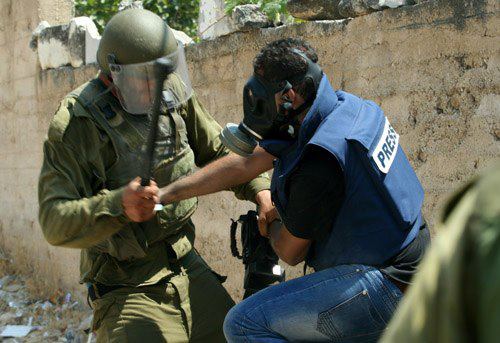Tag: Tear-Gas Canister
-
Kufr Qaddoum resists
By Paddy Clark 31 September 2012 | International Solidarity Movement, West Bank Firas Nahar Jama, 15, was arrested after Israeli soldiers invaded the village of Kufr Qaddoum during the weekly demonstration. Mahmood Nasir Batahan (10) was taken to the hospital after being hit by a tear-gas canister. Two others were treated on the scene after inhaling…
-
Live ammunition in Nabi Saleh
By Paddy Clark 31 August 2012 | International Solidarity Movement, West bank Three Palestinians were injured and 5 arrested today during Nabi Saleh’s weekly demonstration. Israeli military set up road blocks surrounding the village early this morning in order to prevent people and journalists from participating. At 4.30 p.m., Malek Tamini was shot with a live bullet…
-
Israeli military beats and arrests journalists, suppresses Kufr Qaddoum demonstration
By Marshall Pinkerton and Alma Reventos 18 August | International Solidarity Movement, West Bank On Friday, August 17, 5 were injured and 8 arrested during the weekly protest in Kufr Qaddoum. Israeli soldiers fired tear-gas canisters, rubber-coated steel bullets, and beat protesters with wooden sticks. The village experienced an unprecedented amount of violence during the peaceful…

